Myanmar’s military launches campaign of arrests to stymie paralyzing strikes
Myanmar’s military has issued arrest warrants for six celebrities, including film directors, actors, and a singer, for encouraging strikes that have paralyzed government offices, as mass protests continue over the recent coup d'état in the country.
The celebrities were wanted for the possible violation of an anti-incitement law, specifically for encouraging civil servants to join in the protests, the military announced in a statement late on Wednesday.
The charges can carry a two-year prison sentence.
The number of people detained since the February 1 coup had reached 495 by Wednesday, according to Myanmar’s Assistance Association for Political Prisoners. It said of those, 460 were still being held.
Also late on Wednesday, in the country’s second-largest city, Mandalay, security forces opened fire on railway workers who had stopped trains running as part of the civil disobedience movement.
Witnesses said one charity worker was wounded in the leg by a rubber bullet.
There was no immediate comment on the incident from either the army or the police.
Hundreds of thousands of anti-coup protesters took to the streets in Myanmar’s largest city of Yangon on Wednesday in what they hoped would be a major show of opposition to the army’s overthrow of the country’s de facto leader Aung San Suu Kyi.
The protesters blocked roads and bridges with vehicles, pretending their cars had broken down, to stop police and army trucks from moving around to break up protests.
Myanmar’s military has denied that its takeover of the government constituted a coup d'état, claiming that it plans to hold a new election and hand power to a civil government.
The protesters are deeply skeptical of the junta’s promises.
Early on Thursday, police ordered dozens of chanting protesters to disperse from a busy intersection near the main university in Yangon.
More demonstrations were planned for Thursday, including by student groups and workers from different ethnic groups, despite the intensifying crackdown on protesters.
The military, which has imposed a state of emergency for one year, ousted the government early this month and arrested Suu Kyi and her top political allies over accusations of voter fraud in favor of her National League for Democracy (NLD) Party in the November 2020 elections.
Suu Kyi, who has been charged with importing walkie talkies, is now facing a second charge of violating the country’s Natural Disaster Law.
The coup has sparked the biggest protests in Myanmar in more than a decade, with hundreds of thousands taking to the streets to denounce the military.
Over the weekend, the junta ordered an hours-long nationwide internet shutdown and deployed troops and tanks around the country.
In recent days, rubber bullets, tear gas, and even slingshots have also been used against protesters.
Despite the junta’s violent efforts to bring resistance to heel, there has been no sign of the strikes easing, and defiant demonstrators have been on the streets demanding a return to a democratic government.
Hackers target junta-run websites
Meanwhile, hackers have attacked military-run government websites in Myanmar.
A group called Myanmar Hackers disrupted multiple government websites on Thursday, including those of the Central Bank, the military, state-run broadcaster MRTV, the Port Authority, and the Food and Drug Administration.
“We are fighting for justice in Myanmar,” the hacking group said on its Facebook page. “It is like mass protesting of people in front of government websites.”
The move was part of a cyber war that started after Myanmar authorities shut down the internet for a fourth straight night.
Monitoring group NetBlocks also said another internet shutdown began in Myanmar on Thursday, adding that internet connectivity had dropped to just 21 percent of ordinary levels.
Myanmar was ruled by the military until 2011, when Suu Kyi ended the junta rule and introduced what were presented as reforms. She had been under house arrest before.
Her party, however, cultivated close relations with the military from the beginning of its activity and formed an alliance with senior military officers.
She personally supported the military in a deadly campaign of genocide against the Rohingya Muslim community in the western state of Rakhine. Suu Kyi also defended military atrocities against the Rohingya people at the United Nations (UN)’s top court in The Hague in December 2019.
British PM Keir Starmer faces calls to resign
Iran’s Kowsar satellite beams Islamic Revolution anniversary message across region
VIDEO | Press TV's news headlines
VIDEO | Indian regions celebrate Iran’s Islamic Revolution anniversary
Iran’s missile program will never be on negotiating table: Shamkhani
Hezbollah: 47 years of Iranian progress proof of ‘abject failure’ of Western plots
Iran’s Larijani meets Qatari emir amid nuclear talks with US
VIDEO | 47th anniversary of Islamic Revolution celebrated at Iran's Embassy to Holy See




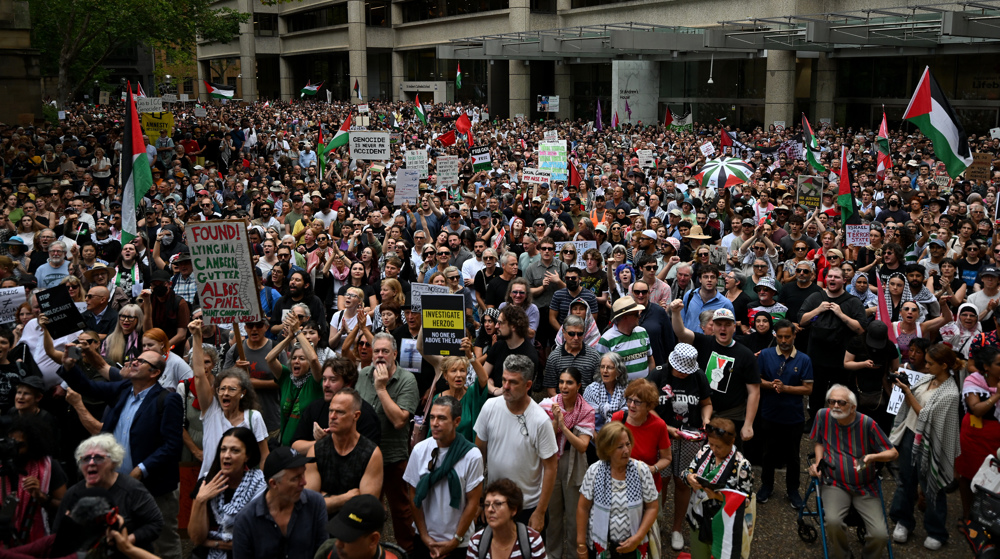
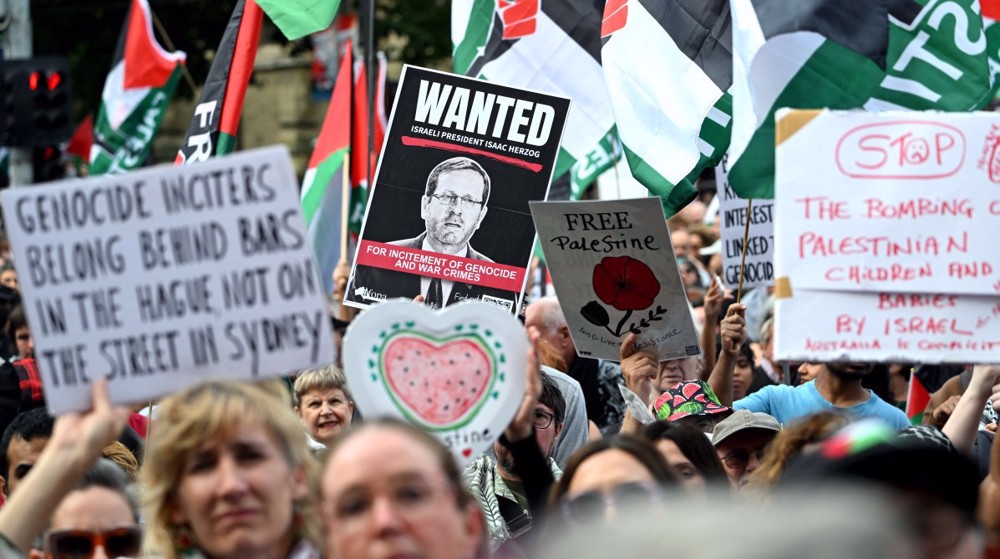
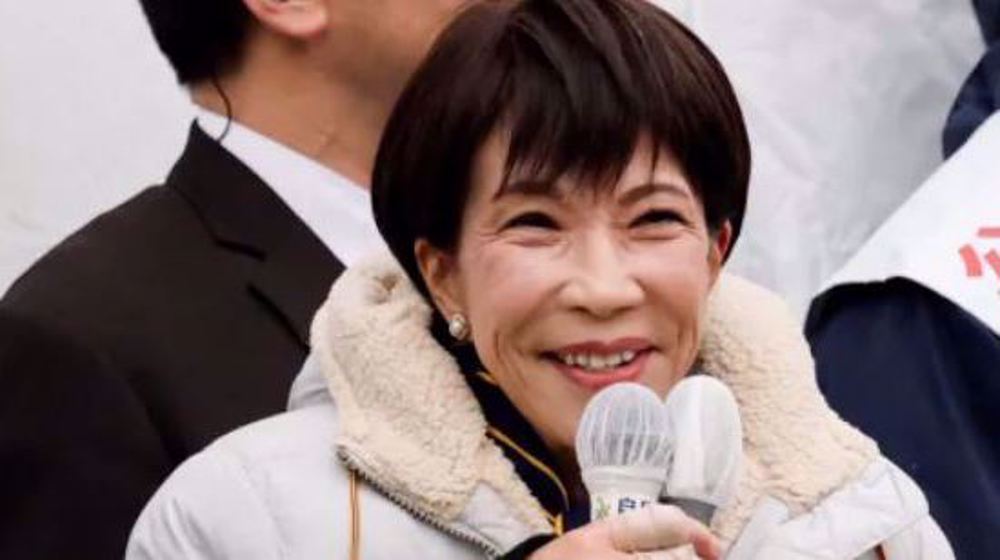



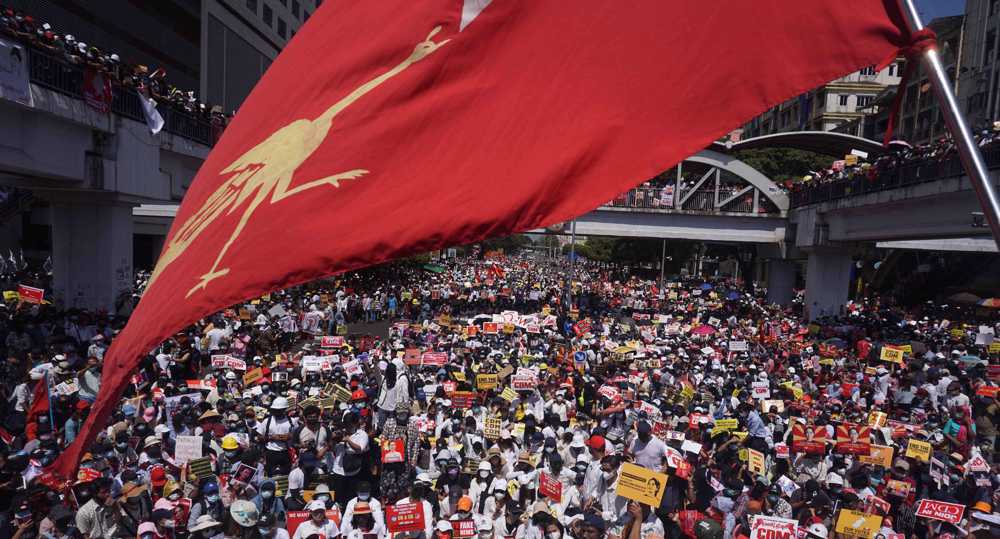
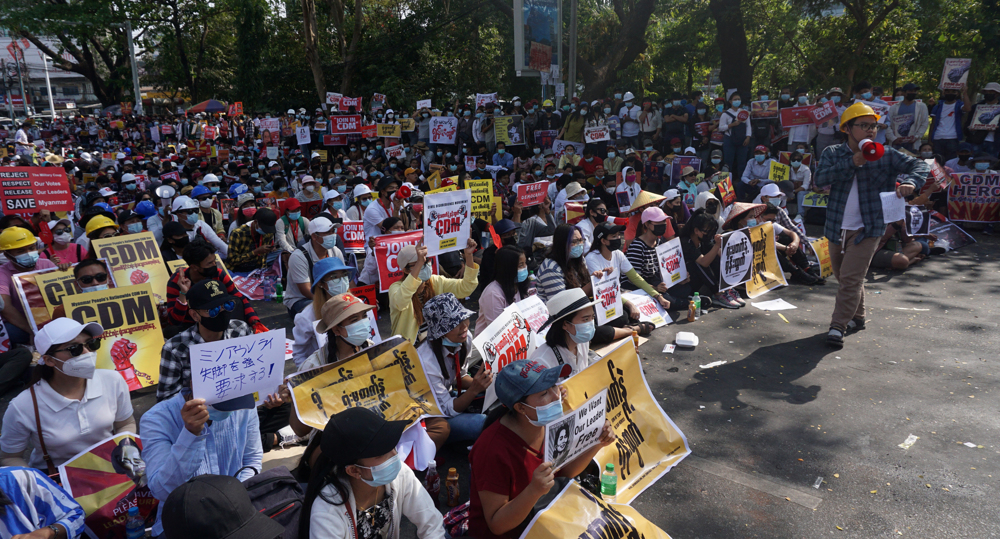
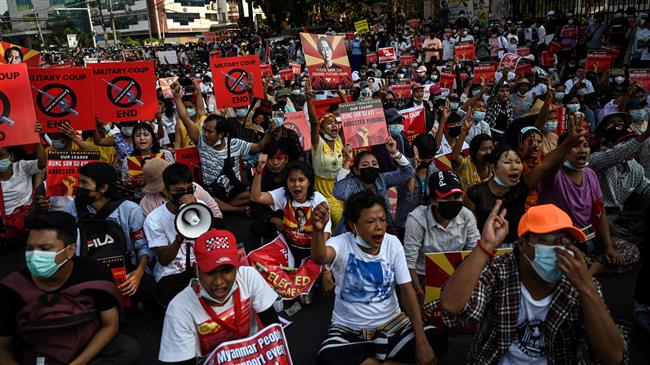
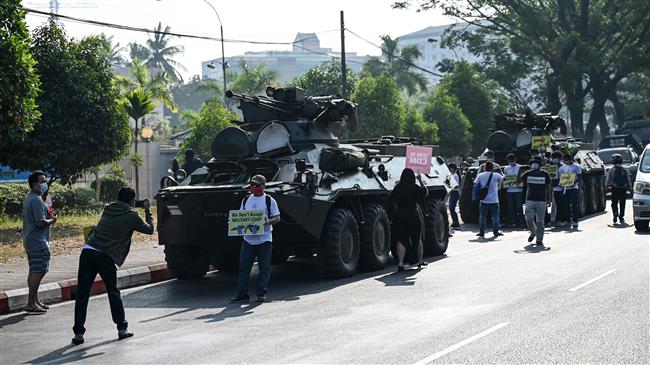

 This makes it easy to access the Press TV website
This makes it easy to access the Press TV website